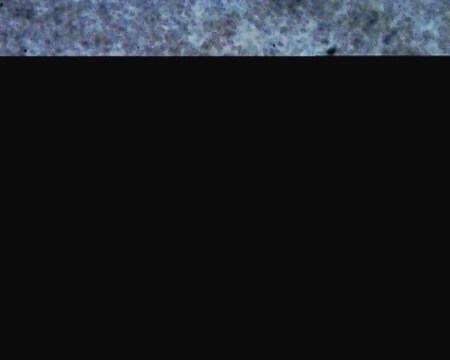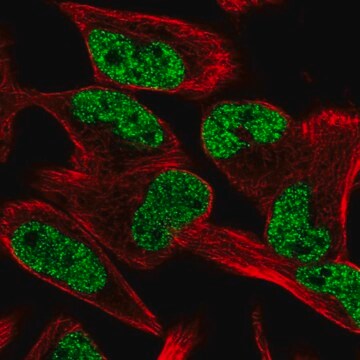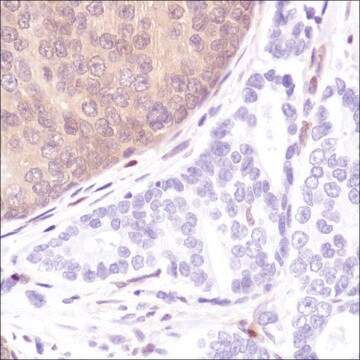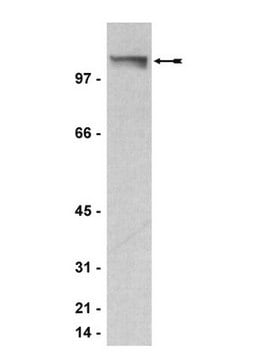General description
Pro-neuregulin-2, membrane-bound isoform (UniProt: P56974; also known as Pro-NRG2; Divergent of neuregulin 1; DON-1) is encoded by the Nrg2 gene in mouse species. NRG2 is a novel member of the neuregulin family. Neuregulins serve as multi-potent epidermal growth (EGF) - like factor that influence growth, differentiation, survival, and fate of several cell types. Most NRGs are synthesized as membrane precursors that are converted to signaling-competent soluble ErbB receptor ligands via shedding of their ectodomains by alpha- or beta secretases. NGR2 acts as a direct ligand for ErbB3 and ErbB4 tyrosine kinase receptors. Its highest expression is found in the brain and is found in granules and Purkinje cells in the cerebellum. NRG1 and NRG2 mediate distinct biological processes by acting at different sites in tissues and eliciting different biological responses in cells and NRG-2 is shown to stimulate different ErbB-receptor tyrosine-phosphorylation profiles from NRG-1. The neuregulin receptor ErbB4 is reported to be an important modulator of GABAergic interneurons and neural network synchronization. In cultured cortical interneurons NMDA receptors are reported to be target of NRG2/ErbB4 signaling and this signaling downregulates NMDARs selectively in GABAergic interneurons. Ref.: Carraway KL., et al. (1997). Nature 387(6632): 512-516.
Specificity
This polyclonal antibody detects membrane bound pro-neuregulin 2 in mouse cerebellum.
Immunogen
Epitope: extracellular domain
His-tagged recombinant fragment corresponding to the extracellular domain of mouse NRG2.
Application
Anti-Pro-NRG2 ECD Antibody, Cat. No. ABN1654, is a highly specific rabbit polyclonal antibody that targets Pro-neuregulin-2, membrane-bound isoform, and has been tested in Western Blotting.
Research Category
Neuroscience
Western Blotting Analysis: A representative lot detected Pro-NRG2 ECD in ErbB4 stimulated membranes. (Vullhurst D., et. al. (2015). Nat. Commun. 6:7222).
Quality
Evaluated by Western Blotting in mouse cerebellum tissue lysate.
Western Blotting Analysis: 1 µg/mL of this antibody detected Pro-NRG2 ECD in 10 µg of mouse cerebellum lysate.
Target description
~110 kDa observed; 82.2 kDa calculated. Uncharacterized bands may be observed in some lysate(s).
Physical form
Format: Purified
Protein A purified
Purified rabbit polyclonal antibody in PBS with 0.05% sodium azide.
Storage and Stability
Stable for 1 year at 2-8°C from date of receipt.
Other Notes
Concentration: Please refer to lot specific datasheet.
Disclaimer
Unless otherwise stated in our catalog or other company documentation accompanying the product(s), our products are intended for research use only and are not to be used for any other purpose, which includes but is not limited to, unauthorized commercial uses, in vitro diagnostic uses, ex vivo or in vivo therapeutic uses or any type of consumption or application to humans or animals.








